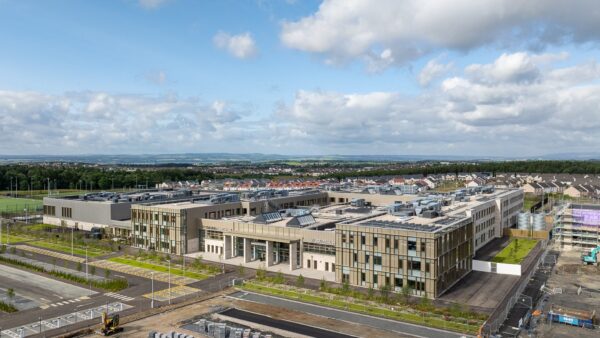Why procurement is key to construction’s technology revolution

Image: Scott Blake + Unsplash
Construction lags other industries on innovation. Technology holds the key but first procurement practices need to change.
The construction industry has always had a reputation for being slow to adopt technological advancements. The issue is that it has failed to fully utilise technology to help run its businesses. The shift needs to come from within, with the focus on procurement managers rethinking the way a construction company can operate, using technology as its main vehicle.
Register for free or sign in to continue reading
This is not a paywall. Registration allows us to enhance your experience across Construction Management and ensure we deliver you quality editorial content.
Registering also means you can manage your own CPDs, comments, newsletter sign-ups and privacy settings.
Of course, there are many major issues affecting the construction industry and procurement innovation through technology may not provide a single solution. But by utilising it properly, construction managers can both weather potential storms and find opportunities to grow their business.
Construction has always operated with the goal of short-term gains: How can we get this done faster? How can I do this job with fewer workers? The path of least resistance has always been chosen, not because the industry wanted to choose it, but because it was often all that could be done under the circumstances. With extremely tight margins and deadlines, it’s hard to forecast, innovate, or disrupt current practices when there’s no room or time for error.
The first wave of this disruption was in design – we see this every day in our city skylines. The next is procurement, and this will be led by technology. We have seen positive outcomes from procurement innovation in other industries. For example, according to Mace’s Moving to Industry 4.0 report, the service sector has improved its output by over 30% and manufacturing has increased its output by more than 50%. Construction? It has remained flat. If other industries can change to be more efficient and innovative, why can’t construction?
Setting the baseline
The sort of processes and efficiencies that make a difference include everything from improving production methods to managing forgotten or unmanaged spend. To be more innovative, you must set the baseline and provide the technological tools to teams necessary for change. Karl Glennon, chief technology officer (CTO) and co-founder of workforce travel platform Roomex, knows all too well about the importance and perceived difficulty of incorporating technology into practices.
“We need to change the way the construction industry thinks about technology. At the moment some of the products that are perfect for the industry are seen as a hindrance rather than a help, which is understandable if you’ve developed a career not using these technologies. But in reality, there is a need to streamline and improve processes across the board,” he says.

Roomex provides a free workforce travel booking platform that lends itself to the construction industry (Image: Steven Erixon + Unsplash)
Glennon’s company Roomex provides a free workforce travel platform. It offers a single portal where businesses can compare, book and manage hotel bookings, which lends itself to the construction industry, where employees travel regularly throughout the year to fulfil contract work. And although recognition of the importance of technology in the industry is improving, there does seem to still be a long way to go.
“It’s always interesting hearing some of the reasons why people don’t want to integrate a new piece of tech into their company. The perceived time and effort is often a cause for hesitation but in actual fact most companies will almost instantly see the benefit of these technologies in the saving of time and money,” says Glennon.
The obvious issues facing the construction industry today come in the form of climate change and future hiring capabilities. And while carbon emissions need to be cut back to pre-industrial levels in order to reverse catastrophic climate change and Brexit is highlighting future hiring issues across the country, rethinking procurement teams and integrating them with helpful technologies might be the most beneficial change any construction business could make.
“We need to change the way the construction industry thinks about technology.”
Karl Glennon, Roomex
This starts with looking for outside help. There needs to be a call on the thriving ecosystem of tech startups to come forward with fresh new ideas. The sector needs to invest in technology to provide opportunities to test new products, identify the systems that are already out there and try to help drive it forward to make a real change.
There is no hiding the fact that construction in the UK has taken a hit – October is looking like the fifth straight month where output is on the slide, according to the Construction Purchasing Managers’ Index, run by IHS Markit/CIPS UK – and there is a chance that this stagnation will continue, with a weakening economy on the horizon.
The benefit of procurement rolling with the punches and working to improve company visibility in all aspects of the business has never been more important. Controlling spending and streamlining processes might not be the answer to a slowing economy, but certainly can help an industry that is facing many challenges.
So where to start for a procurement team looking to make positive changes in the way they do business? Start from square one – re-evaluating value. Rather than only finding value in profits or time to completion, there is value to be found in streamlining processes to become more efficient long term.
Understand the entire process and how it impacts or could be impacted by the main forces striking the industry: climate change, hiring and retention, and operations. What small changes in procurement led by technology can be implemented to not only better your business, but the business of those you work with, and the built environment?
Article produced in association with












